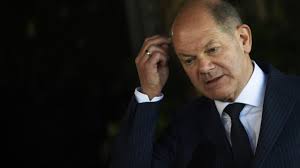
BRUSSELS, Feb 4, 2021 (BSS/AFP) – EU foreign policy chief Josep Borrell
jets to Moscow on Thursday under pressure to confront the Kremlin over the jailing of Alexei Navalny and a crackdown on protesters.
The visit — the first to Russia by a top EU envoy since 2017 — has drawn
criticism from some European capitals worried Moscow will spin it as evidence Brussels is keen to return to business as normal.
But Borrell insists he will deliver “clear messages” to the Kremlin
despite it blanking Western calls to release President Vladimir Putin’s most
prominent domestic opponent Navalny, who was on Tuesday given a jail term of almost three years.
“It is when things are not going well that you must engage,” the former
Spanish foreign minister said on Monday.
The EU’s ties with Russia have been in the doldrums since Moscow seized
Crimea and began fuelling the war in Ukraine in 2014 — and there are
concerns about its involvement in Belarus, Syria, Libya, central Africa and
the Caucasus.
Borrell is eager to sound out his veteran counterpart Sergei Lavrov on the
chances of cooperation on issues including enlisting Russia’s help in
reviving the Iran nuclear deal and tackling climate change.
But it will be the jailing of Navalny and detention of thousands of
demonstrators across Russia by baton-wielding security forces that dominates his visit.
The EU foreign policy chief is under no illusions that he can pressure
Moscow into freeing Navalny — and the Kremlin has already warned him off.
“We hope that such nonsense as linking the prospects of Russia-EU
relations with the resident of a detention centre will not happen,” Putin’s
spokesman Dmitry Peskov said.
Moscow stands “ready to do everything” to develop ties with Brussels, but
the Kremlin is “not ready to listen to advice” on the issue of Navalny, he
said.
The authorities have poured cold water on attempts to set up a meeting
with Putin’s nemesis and Borrell will settle for talks with civil society
representatives. Back in Europe calls are growing from some nations for the
EU to bulk up on sanctions it slapped on six Russian officials in October
over the nerve agent poisoning that left Navalny fighting for his life in
Germany.
EU foreign ministers last week agreed they would revisit the issue if he
was not released.
“After this ruling, there will now also be talks among EU partners.
Further sanctions cannot be ruled out,” said German Chancellor Angela
Merkel’s spokesman Steffen Seibert.
An EU statement said foreign ministers would discuss “possible further
action” at a meeting on Feb 22.
Navalny himself called at the European Parliament last year — two months
before his fateful return to Moscow — for sanctions to hit the oligarchs and
money-men he accuses of protecting Putin’s wealth.
But European diplomats say that any measures, if they come, would likely
just target officials and functionaries directly involved in the clampdown.
There have also been calls for Germany to halt the highly contentious Nord
Stream 2 pipeline project to bring Russian gas to Europe.
Continental powerhouse Berlin has rebuffed the clamour and Borrell insists
Brussels has no power to make Germany pull the plug.
“I don’t think that it is the way to resolve the problem with Navalny,”
Borrell said.
“The Russians won’t change course because we tell them we will stop Nord
Stream.” — NNN-AGENCIES





